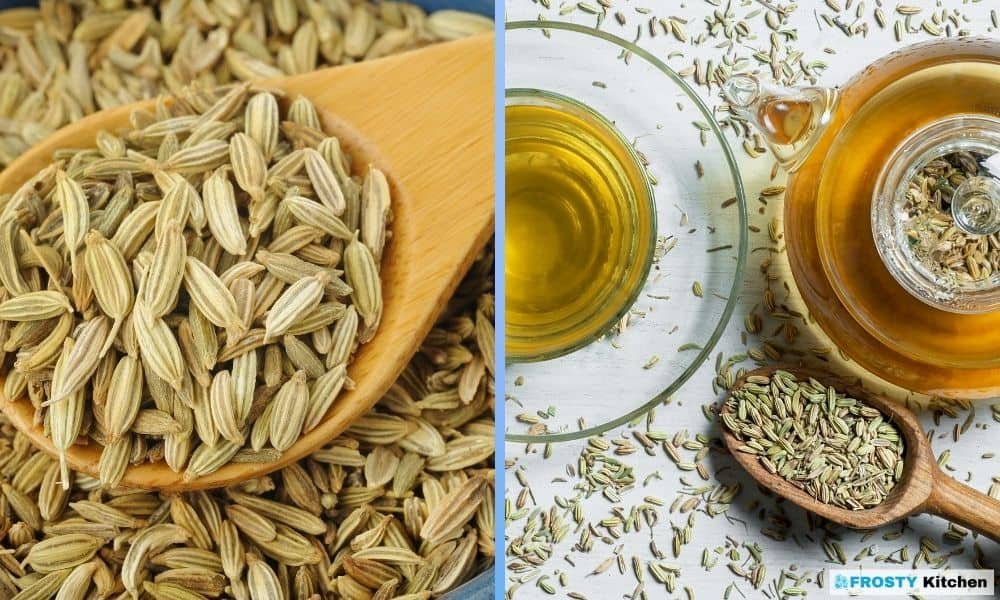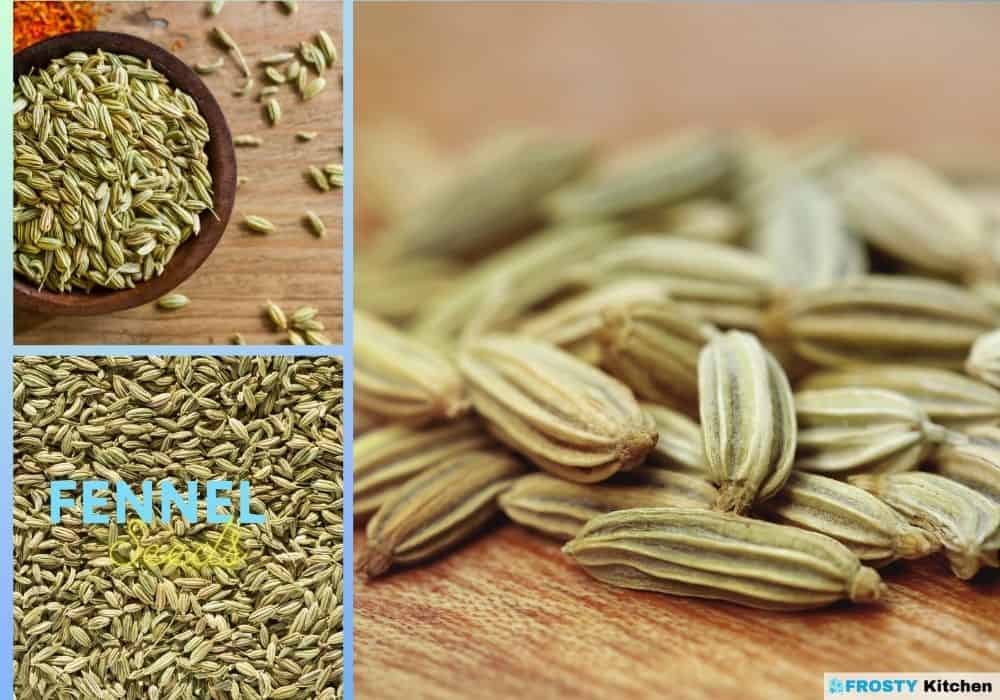Fennel seeds, recognized for their sweet anise-like flavor, find their place in numerous culinary traditions around the globe. These small, aromatic seeds carry a gentle sweetness, making them a favorite in both savory and sweet dishes. This guide aims to unveil the methodical approach to storing fennel seeds, ensuring their aromatic potency is retained for your culinary adventures.
What are Fennel Seeds?
Fennel seeds are the dried seeds of the Foeniculum vulgare plant, bearing a sweet, licorice-like flavor that is more pronounced when the seeds are fresh. They are a common ingredient in Italian, Indian, and Middle Eastern cuisines, often used to season dishes or as an essential component in spice blends.
Origin and History
Fennel seeds have a rich history dating back to ancient times when they were utilized for their culinary and medicinal properties. From the Mediterranean regions, fennel seeds traveled across continents, becoming a cherished ingredient in a myriad of global cuisines.
Nutritional Value
Fennel seeds are not just flavor enhancers; they come packed with health benefits:
- Digestive Aid: Known to promote digestion and alleviate bloating.
- Rich in Antioxidants: They contain potent antioxidants that combat oxidative stress.
- Dietary Fiber: High in dietary fiber, fennel seeds support a healthy digestive system.

Importance of Proper Storage for Fennel Seeds
Preserving the aromatic essence and the sweet, anise-like flavor of fennel seeds is crucial for their culinary efficacy.
General Lifespan and Preservation
When stored properly, fennel seeds can retain their flavor and aromatic potency for up to 2 to 3 years.
Factors Affecting the Lifespan of Fennel Seeds
The shelf life of fennel seeds can be significantly impacted by several factors. Ensuring a favorable storage environment will help in retaining their quality over time.
Temperature
A cool, dry place is ideal for storing fennel seeds as exposure to high temperatures can lead to the loss of essential oils that contribute to their unique flavor.
Exposure to Light
Light can degrade the quality of fennel seeds over time, hence storing them in a dark place or in opaque containers is advisable to preserve their flavor.
Moisture Content
Moisture is a foe to the longevity of fennel seeds, as it can lead to mold growth and spoilage, making it imperative to ensure a dry storage environment.
Packaging
Effective packaging, such as airtight containers, is crucial to shield fennel seeds from environmental adversities and to preserve their quality.
Air Quality
Good air quality, especially low humidity, is pivotal in preserving the freshness and flavor of fennel seeds.
Signs of Spoiled Fennel Seeds
Being able to identify signs of spoilage in fennel seeds will help in ensuring their culinary effectiveness.
Appearance
Any signs of mold, discoloration, or a change in texture can indicate spoilage in fennel seeds.
Odor
A stale or off-putting smell can be a clear indicator that the fennel seeds have gone bad.
Preparation for Storage
Ensuring the fennel seeds are clean, dry, and free from any debris or contaminants before storage is crucial to maintain their quality and pungency.
Picking the Right Packaging/Container
Selecting the appropriate packaging or containers is vital for preserving the flavor and aromatic quality of fennel seeds. Airtight containers or vacuum-sealed bags are often the best choices.
Recommended Types of Containers for Storage
Various containers such as glass jars with airtight lids, vacuum-sealed bags, or BPA-free plastic containers are suitable for storing fennel seeds. These containers help shield the seeds from environmental adversities like air, moisture, and light, thus preserving their quality and extending their lifespan.
Step-by-Step Guide to Storing Fennel Seeds
Maintaining the aromatic essence of fennel seeds is straightforward with the right storage techniques.
Method 1: Dry Storage
- Step 1: Ensure the fennel seeds are clean and completely dry to prevent mold growth.
- Step 2: Transfer the seeds into an airtight container to protect them from moisture and air.
- Step 3: Store the container in a cool, dark, and dry place away from direct sunlight and heat sources.
Method 2: Refrigerator Storage
- Step 1: Ensure the fennel seeds are clean and completely dry to prevent any moisture-related spoilage.
- Step 2: Transfer the seeds into an airtight, dark-colored or opaque container to shield them from light and moisture.
- Step 3: Place the container in the refrigerator, ensuring it’s away from any strong-smelling foods to maintain the seeds’ flavor integrity.
Frequently Asked Questions
Q1: Can fennel seeds lose their flavor over time?
Yes, over time, and especially if not stored properly, fennel seeds can lose their flavor and aroma. Ensuring proper storage in a cool, dark, and dry environment can significantly prolong their flavor potency.
Q2: How can I extend the shelf life of fennel seeds?
Storing fennel seeds in a cool, dark place, and in an airtight container can significantly extend their shelf life and preserve their flavor and aroma. Ensuring the seeds are clean and completely dry before storage also plays a vital role in extending their shelf life.
Q3: Can I freeze fennel seeds to extend their shelf life?
Yes, freezing is a viable option to extend the shelf life of fennel seeds. However, ensure they are stored in an airtight container to prevent moisture and other contaminants from spoiling them.

